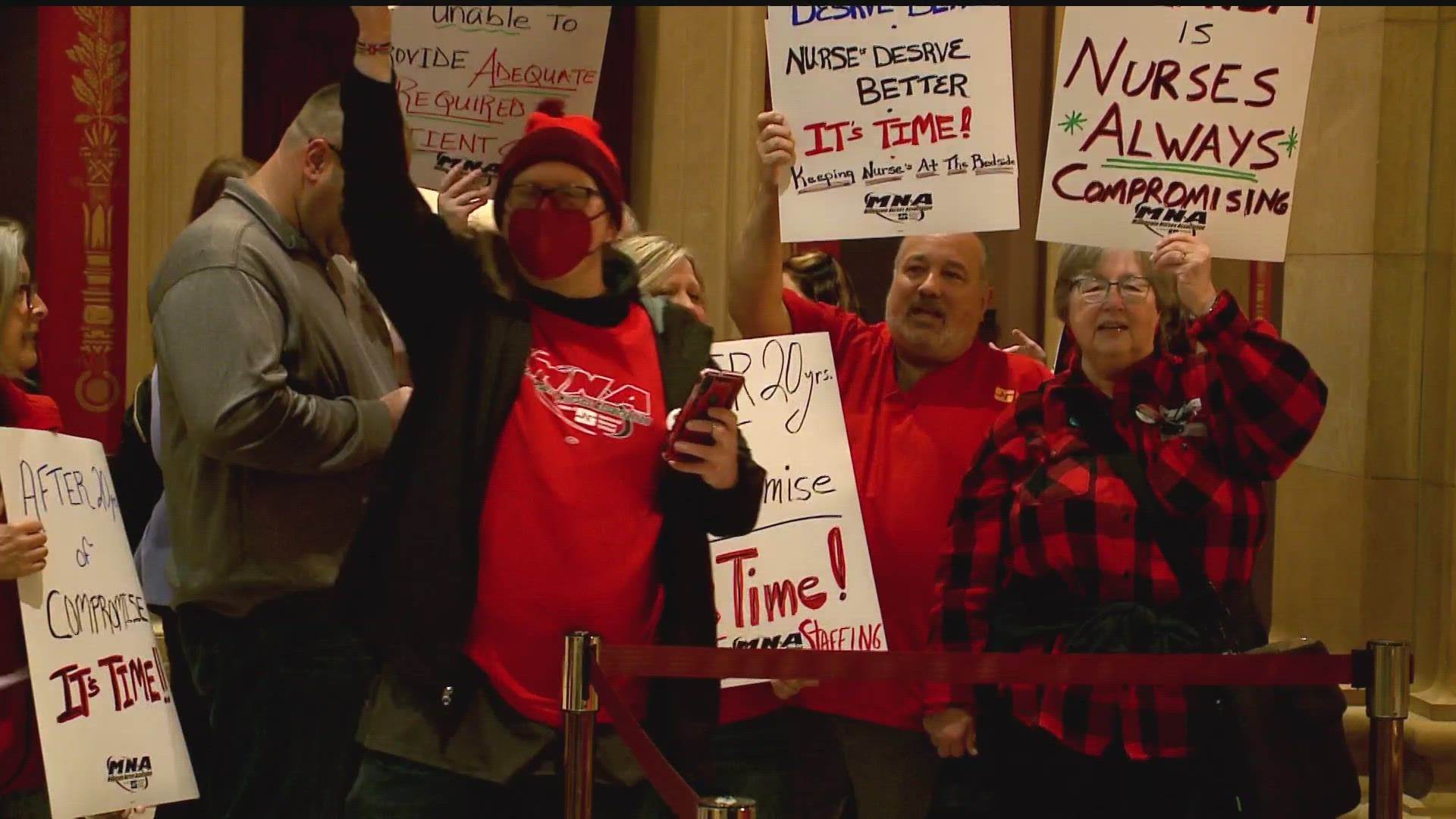ST PAUL, Minn. — The DFL-controlled Senate Wednesday passed a health package that contains a minimum staffing language hospital union nurses have long sought.
Sen. Erin Murphy, a registered nurse and nursing educator, couldn't hold back the tears of joy as she briefed reporters outside the Senate chamber before the big vote.
"Nurses have been saying over and over again they want to take care of patients, they want to do it safely," Murphy, flanked by a group nurses, declared.
"And we're really going to do it. We're going to pass this bill this time."
The Minnesota Nurses Association has been talking about safe staffing levels for many years, but they're no longer asking for hard and fast patient-to-nurse ratios. They want to be on committees that make those decisions, and that provision passed as part of the much larger Health and Human Services omnibus bill.
The legislation, which is yet to be passed by the House, would require that nurses make up at least 35% of workplace committees that set the schedules and maximum patient loads for various hospital units and floors.
"It is about getting us a seat at the table to be able to professionally do what we should have the right to do, and that's to advocate for our patients," Mary Turner, the MNA president, told reporters.
Hospitals are opposed to the idea, asserting it will drive up costs, increase staffing shortages and lower the number of patients that can be served.
"If implemented, these harmful mandates will reduce our ability to provide care, leading to potential unit closures, increased costs, longer wait times for patients, and the loss of vital health care services that communities rely on," read a statement issued by Dr. Rahul Koranne, the president of the Minnesota Hospital Association.
That sentiment was echoed during the Senate debate by Sen. Paul Utke, a Park Rapids Republican.
"This bill will dramatically increase healthcare costs," Sen. Utke told his Senate colleagues.
"Hospitals will be paying for all their employees to serve on the various staffing and workload committees, and in the meantime, those shifts will need to be covered by other hospital care professionals."
Sen. Murphy and other proponents pushed back against that assessment, arguing that hospitals will be able to retain more skilled and experienced nurses if they're not placed in overly stressful or dangerous situations caused by understaffing.
"Give them the tools to make sure they can practice nursing with the skill, the dignity, and the professionalism and excellence we want for Minnesotans across the state," Murphy remarked.
Republicans offered an amendment aimed at solving the staffing shortage, by requiring Minnesota to join an interstate licensing compact that would create reciprocity with other state's licenses.
"People who are already licensed and trained in other states can move to Minnesota and not have to go through the complex licensure hurdles to do a job they're already trained for," Sen. Carla Nelson, a Rochester Republican, explained.
Democrats rejected that amendment, saying that the issue isn't getting nurses to come to Minnesota, it's more about getting them to stay in hospital jobs once they're hired.
Just one Republican joined all 34 Democrats voting for the bill.
Sen. Jim Abeler, an Anoka Republican, agrees with only parts of the bill. But he needed to vote for the measure to have chance to eventually serve on the conference committee that will resolve differences between the House and Senate versions of the bill.
The Health and Human Services bill hasn’t gone to the floor yet in the House, but that chamber has supported the "Nurses at the Bedside Act" in the past.

